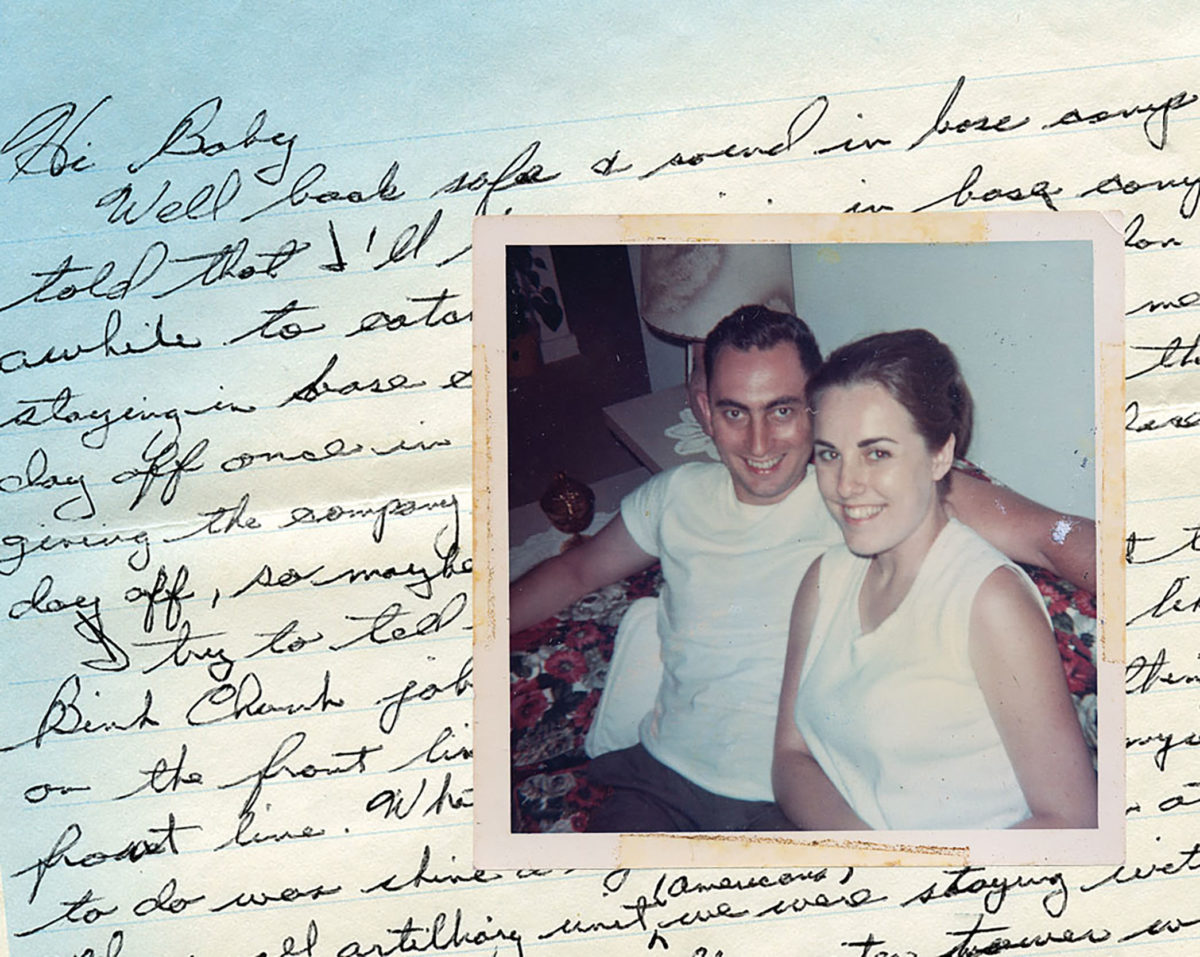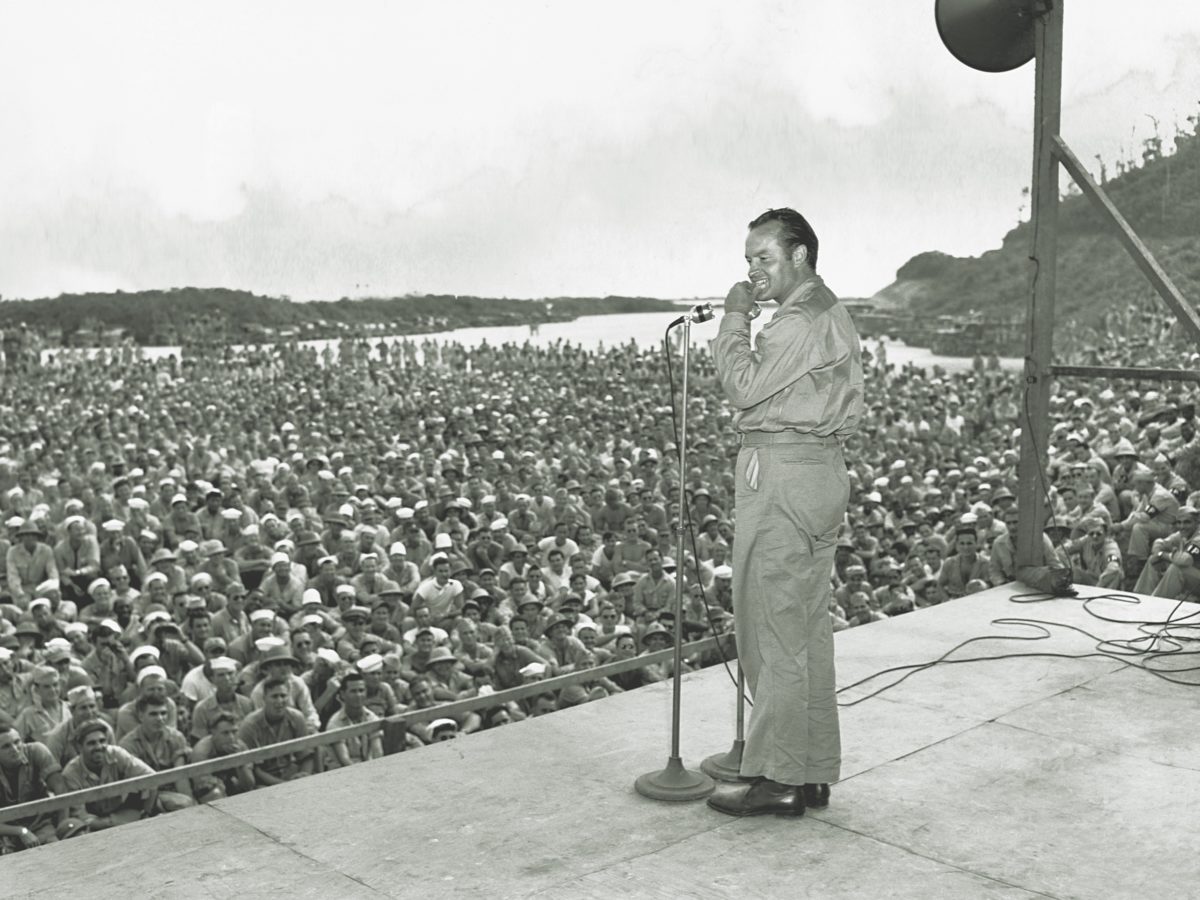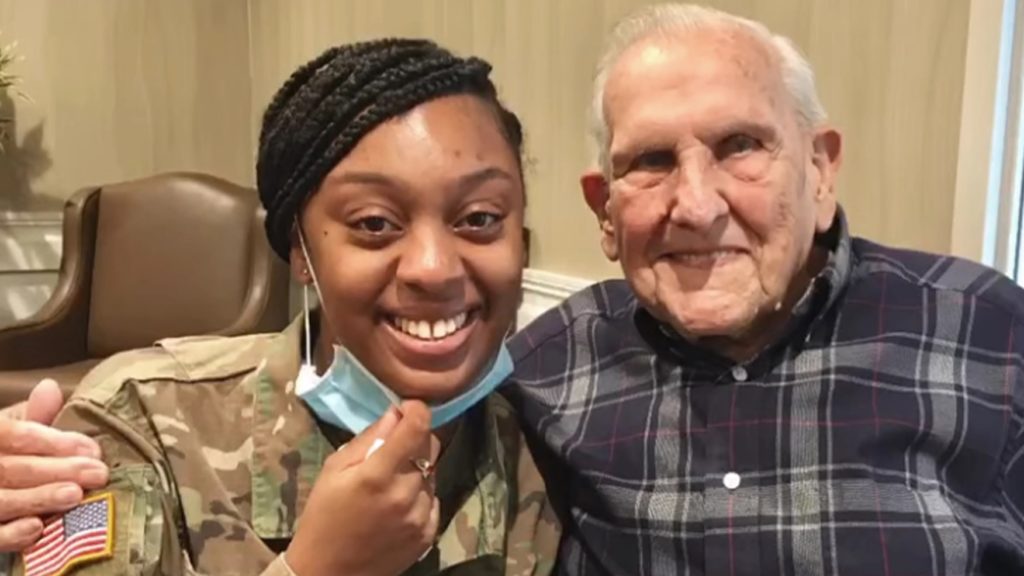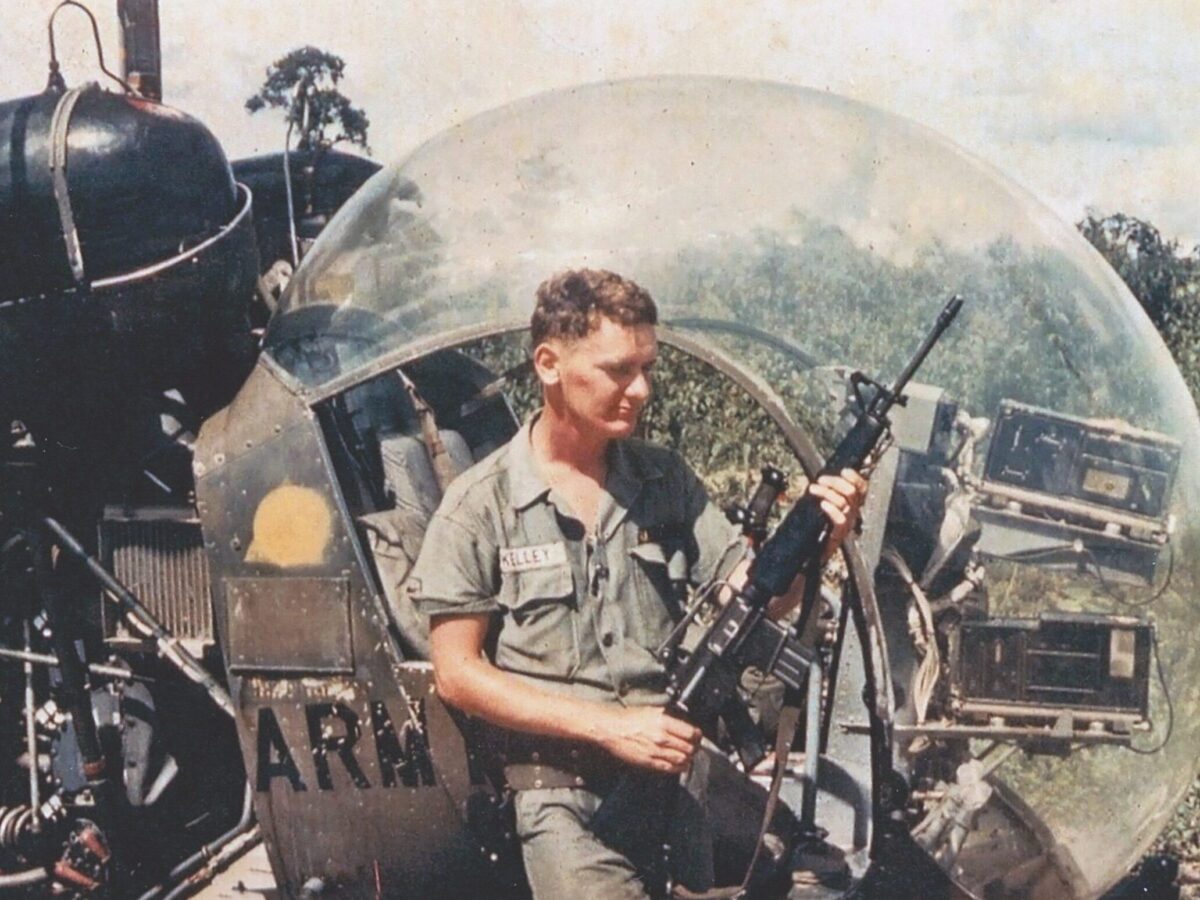She wore a breezy skirt and gently leaned toward the officer as she talked her way out of a speeding ticket. All my dad’s friends loved talking with her. All her friends loved laughing with her. I watched the swarm of people she could command with her raspy Marilyn Monroe-like voice. At dinner one day she said some random person asked to photograph her — in a swimsuit. I never had the guts to flirt with men the way she could.
He wore a button-down shirt with a pocket full of pens and was always working on something that needed to be fixed. He barely noticed people in the room. He had a heart attack, and this is all he told us: “I just felt sick to my stomach and tripped taking out the garbage. Nothing to worry over.” He didn’t focus on pain or complain. That was his way.
When I was cleaning out my parents’ Florida retirement home I found, hidden in a pink box, letters that my father, John C. “Johnnie,” Jacobi, had sent from Vietnam to my mother, Veronica Ann “Ronnie” Jacobi, on New York’s Long Island. They had married in 1963. My dad was a specialist 5 in the 66th Engineering Company. He enlisted in 1966 because he believed in serving his country and wanted to help the people of South Vietnam.
20 Miles from Saigon
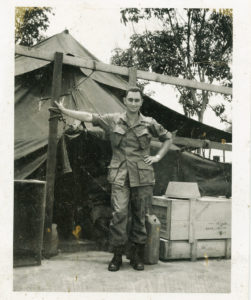
17 Jan 68 8:20 pm
“Hi Baby,
“Well, here I am safe and sound in a small artillery battery in a town about 20 miles from Saigon. We have so much work to do that we have 4 men from the 569th to help. I have one of them with me. We are here to shine a light to another station. The watch tower is about 1/8 of a mile outside the campground, but we were advised not to stay out passed dark, so we don’t. We turn the light on at about 5:30pm and leave it on all night. We have been here two nights but last night was the first night that any work was done. We have one more or two more to do.
…. “The bunker that we are sleeping in is so well sandbagged that I don’t hear the guns going off at night much and they are only a few feet away. I think that’s pretty good, if I can sleep through the firing. They say the bunker we sleep in is so strong that it will withstand a direct attack – so I don’t worry but just go about my business.
…. “I received a birthday gift from my parents. I was surprised to see that my father wrote a letter. Maybe today or tomorrow I will get a chance to write them. Nothing else to tell you right now so I’ll sign off for now and write again soon. Don’t worry about me so much because we are real careful and don’t take any chances. Remember I love you very much and can’t wait until April when I’ll see you again. Take care of yourself and don’t worry so much.
Bye for now,
Johnnie ”
GET HISTORY’S GREATEST TALES—RIGHT IN YOUR INBOX
Subscribe to our HistoryNet Now! newsletter for the best of the past, delivered every Monday and Thursday.
UNCONditional love
Here was my father, a 26-year-old writing to his 24-year-old sweetheart. “I love you very much” was something I never heard him say to my mother. Neither did he say it to me in the 46 years we had together on this earth. However, I have never known a love so unconditional and unwavering.
I had always seen my father print with a neatness bordering on compulsive. His war letters, however, were written in an almost feverish script marked with cross-outs. They were sometimes extremely difficult to read.
I recall a pleasant day growing up when we were returning home from a family outing and getting out of the car. I heard the sound of a low-flying helicopter. It was buzzing almost directly over our driveway. My quiet, reserved father bolted from the driver’s side and tackled me from behind. As we fell to the ground, his body covering mine, I heard him yell, “Get down!”
He told me stories about building watchtowers in Vietnam, and we saw almost all the movies about the war. From “The Deer Hunter,” I learned at an early age about the deadly game of Russian roulette. We watched “Full Metal Jacket” several times when I was a teenager because he needed to explain—he always told me we should never forget the sacrifices made by servicemen in war.
My mother, who had wickedly insightful perspectives about people, taught me about the human condition, life and relationships. She was a nurse and saw suffering from a front-row seat. When my parents talked about Vietnam, my mother used to say, “If the military wanted your father to have a wife they would have issued him one.” She knew exactly where she stood with the Army. She considered going to Vietnam as a nurse to be there with dad but enjoyed her autonomy too much. My mother read compulsively to learn about people and history. She loved biographies and was always relating obscure facts about someone or some event from the past.
Recommended for you
Back in Base camp
20 Jan 68 7:00 pm
“Hi Baby,
“Well back safe and sound in base camp. I’m told that I’ll be remaining in base camp for a while to catch up on back work. I don’t mind staying in base camp as long as they give me a day off once in a while. I learned today that their giving the company Sunday afternoons off in place of that day, so maybe it won’t be too bad.
“I can try to tell you a little more about the job, since it was a little like being on the front lines if there is such a thing as the front lines here. What we (a man from the 569th and myself) had to do was shine a light to another station at night. The small artillery unit we were staying with advised us not to go out to the tower past 6:00 in the evening. So we went out at 5:00 in the afternoon to turn on the light, give the signal and return in the morning, the rest of the time we mostly sat around. The camp was about the size of your father’s property on Long Island. It was part of a larger Vietnamese campground but it was barbed wired separately. Being it was small we didn’t have a place to keep out of the way so we stayed by the truck most of the time.
“….. I wasn’t worried too much since the bunker we were sleeping in would stand a direct hit. The bunker was so solid that they would fire an average of 100-105 mm rounds a night and even more when support was needed. After I went to sleep I never heard one of them go off and the guns were 20-50 feet away from the bunker. The second night we were there another part of the campground was hit and two nights ago the infantry was hit by mortar fire. I didn’t know anything about it until the next morning when it was all over.”
BROKEN HEART
My father always downplayed the gravity of the situation, forever looking on the bright side. Yet after my mother died in December 2012, I thought my father might die too — of a broken heart. He had a heart attack just weeks after her death, but survived.
ZHINK
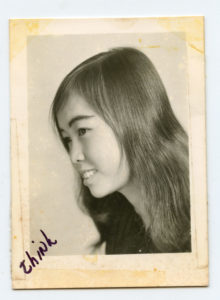
V. N 25 Nov 68
“Dear Jacobi,
“How are you? I write letter for today – you happy now Jacobi? Long time no write letter because I have very much work, I am sorry.
“Now you living same same formerly and do you have children – can’t I happy too.
“Jacobi are you happy now, because you not have to comeback to Viet Nam all right.
…..
“I can’t write I’m sorry. I hope family happy.
“Sister small housegirl yours formerly,
“Zhink thi Zhank.”
LAID to Rest
With the letter was a black-and-white photograph of a beautiful teenage girl with her name in thick black ink at the bottom — Zhink. She was one of the Vietnamese house girls hired to clean the barracks. My heart plummeted as I wondered what became of her. How cruel it must have been for her to know my father was at peace, safe with his love and in his country, while she was left in a war-torn country with death and destruction all around.
As I read the letters, I thought about the movies my father and I watched, mostly about male friendships during the war and deaths in combat.
“When I go, bury me with the boys,” my dad told me.
When he died in April 2018, I laid him to rest at Sarasota National Cemetery. Those boys were his family. I had known to some extent, how and why I wasn’t supposed to forget. Yet, none of those movies could have prepared me for the reality I faced as Zhink’s letter shook in my hand.
Not long ago I visited my small town’s art museum and discovered an exhibit of recent photographs showing the landscape and people of Vietnam. As I gazed deeply into the eyes of the people in the photographs, recollections of my father’s experiences pulsed through my veins. I looked at them partially through his eyes. How could I not? I remembered his words: Never forget. V
Tara Jacobi is a lawyer, writer and editor on the Central Coast of California.
historynet magazines
Our 9 best-selling history titles feature in-depth storytelling and iconic imagery to engage and inform on the people, the wars, and the events that shaped America and the world.


